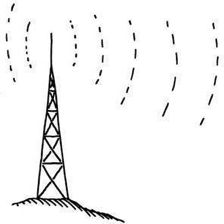 What makes Radiohead’s “pay-what-you-want” for In Rainbows release still so relevant this far down the road is not that it was the first of its kind (it wasn’t) or that it changed the mainstream music industry (not IMO), but that music fans, bloggers, journalists, Wall Street, and famous musicians can’t stop talking about it. That’s an especially fitting feat because, as Jonny Greenwood said at the time, the point was to question the value of music, not quantify it.
What makes Radiohead’s “pay-what-you-want” for In Rainbows release still so relevant this far down the road is not that it was the first of its kind (it wasn’t) or that it changed the mainstream music industry (not IMO), but that music fans, bloggers, journalists, Wall Street, and famous musicians can’t stop talking about it. That’s an especially fitting feat because, as Jonny Greenwood said at the time, the point was to question the value of music, not quantify it.
Most music stars err on the side of praise for The Radiohead Model, but a few, including Sonic Youth’s Kim Gordon and The Cure’s Robert Smith, have come out in support of less popular bands that could possibly not sustain themselves by letting their non-existent fan base choose whether to pay or not. Now that he’s in good company, trance producer and one of the few surnamed DJs Paul Van Dyk has chimed in on the subject in an interview with Time Out Chicago’s Dani Deahl (via The Daily Swarm):
Bands like Radiohead who basically made millions and millions and millions of dollars back in the days when there were no download sites. They can easily say “Hey whatever, we don’t need the money,” just put it out there. It’s such an easy gesture for them. But at the end of the day those young talented bands, they have to live off every single dollar they earn. They can’t just give it away. And this is something where I believe that thing that Radiohead did was absolutely counterproductive for developing music and for any artist in the world. And was very selfish. But the thing is, you just have to see the bigger picture. It’s not like they just give their music away for free to somebody. I mean, they don’t need that money, fair enough, so why not. But in return, what would have been a fair gesture is saying, “Okay you pay for my record but I don’t take the money, I give it to the young bands, I give it to whoever supports interesting new music.”
Don’t want to get too opinionated ‘round here, but I do agree that rock stars should become (some already are) the new patrons of the arts. For more, including how he thinks illegal mp3 downloading is “a major crime” akin to stealing from “a bakery shop,” click here.
